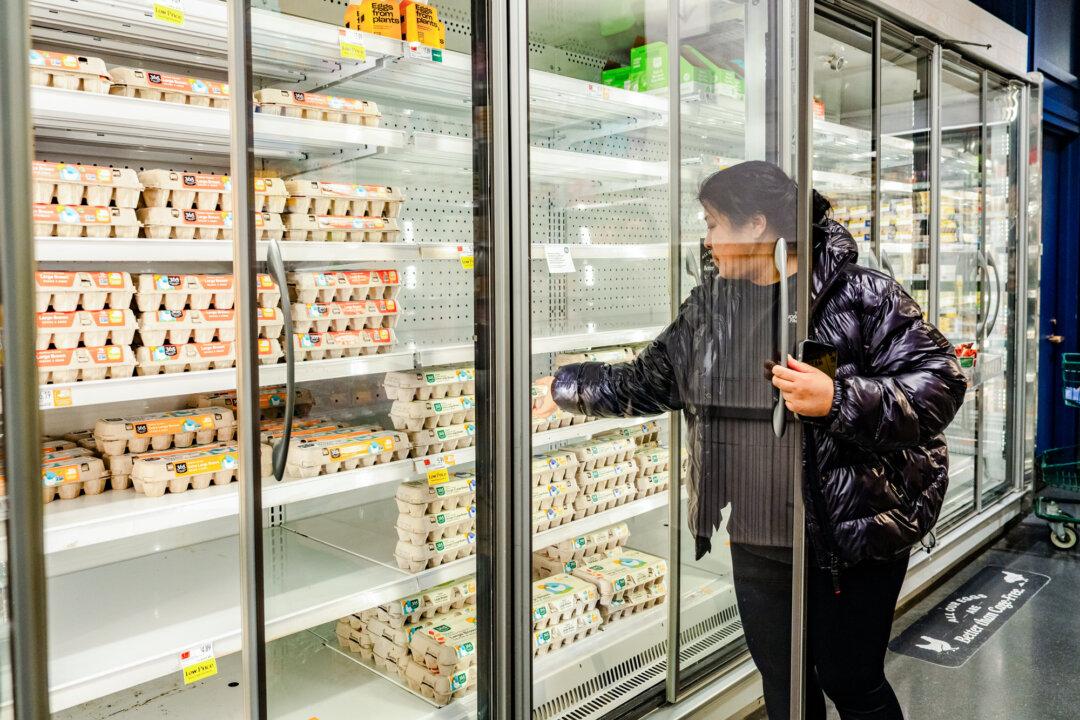Cal-Maine Foods Inc., the nation’s largest egg producer, on April 8 acknowledged that it is being investigated by the Department of Justice’s Antitrust Division over the national increase in egg prices.
The brief admission in its newest financial report made headlines, and the company’s shares fell by about 4 percent in after-hours trading.





